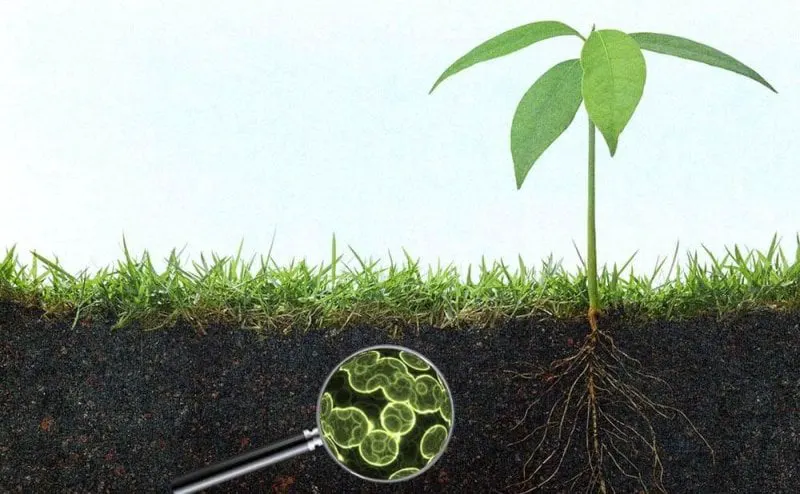Replacing industrial produced fertilizers: Specially-bred soil-enriching bacteria poised to dramatically cut crop chemical inputs, protecting farms and the climate
Replacing industrial produced fertilizers: Specially-bred soil-enriching bacteria poised to dramatically cut crop chemical inputs, protecting farms and the climate


[A]s the world’s demand for agricultural products has grown, the nutrients needed to grow all our crops has far outpaced the rate at which bacteria can enrich soils. By the early 20th century, humanity urgently needed an artificial way of fixing nitrogen.
The Haber-Bosch process was the solution. Chemists Fritz Haber and Carl Bosch invented a method of combining nitrogen and hydrogen gas at high pressure and temperature, breaking apart the nitrogen bond, and enabling the freed atoms to fuse back together as ammonia.
It’s also responsible for between 1 and 1.5 percent of all global carbon dioxide emissions every year, which is why some researchers are exploring ways to return to the biological fixation method, rather than continuing to rely on the mass production of fertilizers.
One potential avenue is breeding the bacteria to be more “promiscuous,” making them less picky about their choice of plant partner, explains Manish Raizada, an agriculture researcher at the University of Guelph in Canada. “There are opportunities to make [the bacteria] more compatible with more plant hosts,” he says. “We would call these elite strains. And these elite strains have been bred for traditional selection and breeding, they’re not GMOs.”
This is an excerpt. Read the original post here.

 | Videos | More... |

Video: Nuclear energy will destroy us? Global warming is an existential threat? Chemicals are massacring bees? Donate to the Green Industrial Complex!
 | Bees & Pollinators | More... |

GLP podcast: Science journalism is a mess. Here’s how to fix it

Mosquito massacre: Can we safely tackle malaria with a CRISPR gene drive?

Are we facing an ‘Insect Apocalypse’ caused by ‘intensive, industrial’ farming and agricultural chemicals? The media say yes; Science says ‘no’
 | Infographics | More... |

Infographic: Global regulatory and health research agencies on whether glyphosate causes cancer
 | GMO FAQs | More... |

Why is there controversy over GMO foods but not GMO drugs?

How are GMOs labeled around the world?

How does genetic engineering differ from conventional breeding?
 | GLP Profiles | More... |

Alex Jones: Right-wing conspiracy theorist stokes fear of GMOs, pesticides to sell ‘health supplements’




 Viewpoint — Fact checking MAHA mythmakers: How wellness influencers and RFK, Jr. undermine American science and health
Viewpoint — Fact checking MAHA mythmakers: How wellness influencers and RFK, Jr. undermine American science and health Viewpoint: Video — Big Solar is gobbling up productive agricultural land and hurting farmers yet providing little energy or sustainabilty gains
Viewpoint: Video — Big Solar is gobbling up productive agricultural land and hurting farmers yet providing little energy or sustainabilty gains Trust issues: What happens when therapists use ChatGPT?
Trust issues: What happens when therapists use ChatGPT? Fighting deforestation with CO2: Biotechnology breakthrough creates sustainable palm oil alternative for cosmetics
Fighting deforestation with CO2: Biotechnology breakthrough creates sustainable palm oil alternative for cosmetics California, Washington, Oregon forge immunization alliance to safeguard vaccine access against federal undermining
California, Washington, Oregon forge immunization alliance to safeguard vaccine access against federal undermining 30-year-old tomato line shows genetic resistance to devastating virus
30-year-old tomato line shows genetic resistance to devastating virus The free-range chicken dilemma: Better for birds, but with substantial costs
The free-range chicken dilemma: Better for birds, but with substantial costs ‘You have to treat the brain first’: Rethinking chronic pain with Sanjay Gupta
‘You have to treat the brain first’: Rethinking chronic pain with Sanjay Gupta
